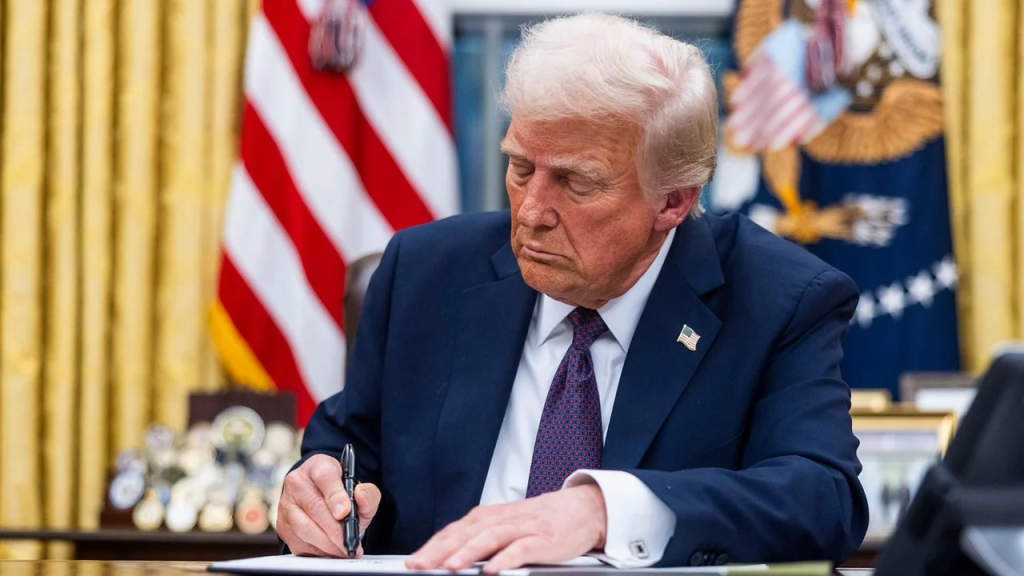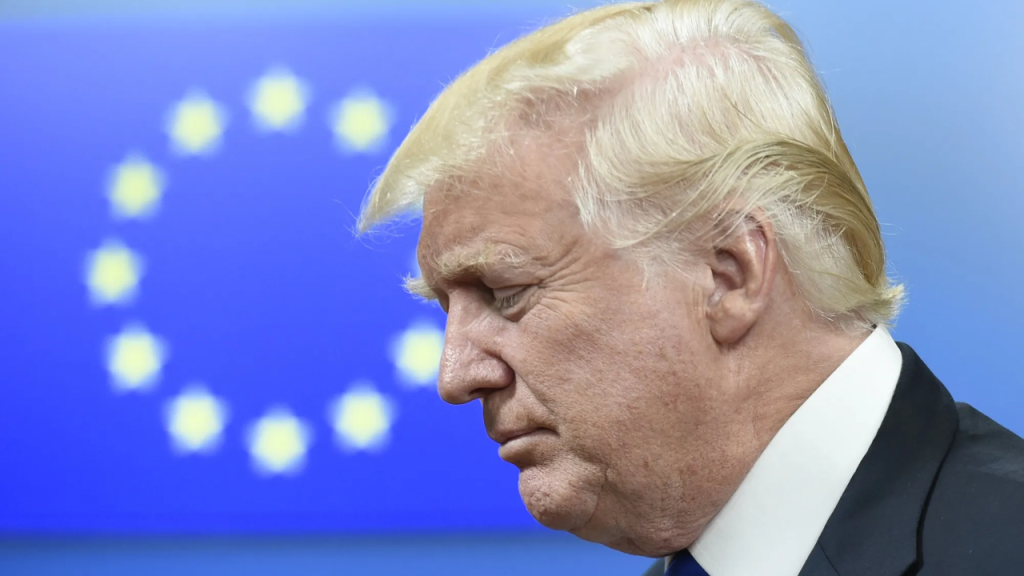
The European Commission has recently adopted unusual security measures, equipping its staff with burner phones and plain laptops for trips to the United States.
These precautions are typically reserved for travel to countries with high surveillance risks, such as China, and highlight growing concerns about security threats linked to U.S. espionage. This move comes amid reports of a strategic shift in Europe’s relationship with China, which could challenge U.S. interests.
The new guidelines apply specifically to European Commissioners and other high-ranking officials heading to the IMF and World Bank spring meetings next week.
According to several sources familiar with the briefing, the EU staff will leave behind their usual IT gear when traveling to the U.S. due to fears of potential surveillance by American agencies.
“They are worried about the US getting into the commission systems,” an official revealed.
These measures, which mirror the security protocols for visits to Ukraine and China, reflect heightened fears of spying. In recent years, there have been multiple reports of countries like Russia allegedly spying on U.S. military bases and plotting attacks in Germany.
The concerns are similar, with staff being advised to leave their devices behind to avoid compromising sensitive information.
The EU’s caution stems from growing tensions with the United States, particularly since the return of former President Donald Trump to office in January.
Trump has been vocal about his disdain for the EU, even going so far as to accuse the union of being designed to undermine the U.S. He has also implemented tariffs on European exports, temporarily increasing them to 20 percent before reducing them.
Recent incidents have further fueled the EU’s concerns, including reports of travelers being denied entry into the U.S. for expressing critical views about the Trump administration.
One example involved a French researcher heading to Texas, who was sent back to France after making comments about U.S. scientific policies. Even American citizens have faced scrutiny, with advisories to remove certain apps from their devices before entering the country.
Noor Zafar, a senior staff attorney with the American Civil Liberties Union (ACLU), warned travelers to take extra precautions when visiting the U.S.
“I think we are in a period of more aggressive enforcement and questioning at the border. We would recommend that travelers take extra precautions when they’re traveling into the U.S.,” she told USA Today.
Hilton Beckham, Assistant Commissioner for U.S. Customs and Border Protection, emphasized that lawful travelers have nothing to fear. “These measures are designed to protect our nation’s security,” he said.
“However, those intending to enter the U.S. with fraudulent or malicious intent – don’t even try. A visa is a privilege, not a right.”
The tensions between Europe and the U.S. have been further exacerbated by Trump’s policies. His administration’s stance on Russia, coupled with his pressure on Ukraine to relinquish control over its assets, has raised concerns in Europe.
The withholding of military aid to Ukraine and the threat to withdraw security assurances from Europe have prompted a continent-wide rearmament effort. One EU official even stated, “The transatlantic alliance is over.”
Despite the strained relations, the White House and the U.S. National Security Council have remained silent on these developments, declining to comment on the EU’s new security measures.
At the same time, sensitive negotiations are ongoing between Brussels and Washington, which could have significant implications for both parties.
In an attempt to ease trade tensions, EU Trade Commissioner Maros Sefcovic is scheduled to meet with U.S. Commerce Secretary Howard Lutnick in Washington on Monday.
Their discussions will focus on resolving a trade dispute, with the EU considering delaying retaliatory measures against U.S. exports worth €21 billion due to tariffs on steel and aluminum.

The U.S. has also raised concerns over the EU’s regulation of its tech firms, accusing Brussels of suppressing free speech and manipulating elections. A particular issue has been the disqualification of a Romanian presidential candidate, who had gained significant support through TikTok.
Three high-ranking EU officials are scheduled to travel to Washington for the IMF and World Bank meetings from April 21-26. The officials include Valdis Dombrovskis, the Economy Commissioner; Maria Luis Albuquerque, the Financial Services Chief; and Jozef Sikela, who oversees development assistance.
The European Commission has confirmed that it recently updated its security advice for U.S. travel. However, they have denied issuing specific instructions about using burner phones in writing. The Commission’s diplomatic service was involved in the security update, as it regularly handles such matters.
Travelers are being advised to turn off their phones at the U.S. border and place them in special sleeves to protect against potential espionage. Luuk van Middelaar, a director at the Brussels Institute for Geopolitics, stated that this advice was not surprising.
“Washington is not Beijing or Moscow, but it is an adversary that is prone to use extra-legal methods to further its interests and power,” he said, referencing past incidents like the spying allegations against the Obama administration.
The risk of surveillance is heightened by the U.S. government’s right to seize visitors’ phones and check their contents. European visitors have been turned away at U.S. borders for having critical social media posts or documents on their devices that were deemed unfavorable to the Trump administration. In one such case, a French researcher was denied entry for expressing a “personal opinion” about U.S. research policies.
To avoid complications, EU officials have been advised to keep their visas in diplomatic “laissez-faire” documents instead of their national passports.
The ACLU has also warned noncitizen visa holders and tourists to be prepared for extensive questioning at U.S. borders. Zafar advises these travelers to respond truthfully to U.S. Customs and Border Protection (CBP) inquiries and to follow all given orders.
For U.S. citizens traveling abroad, the ACLU suggests having lawyer contact information readily available. While travelers may be denied a chance to call an attorney in cases of extended detention, Zafar advises that being prepared for such a scenario is important.
Travelers are also encouraged to delete personal data, including social media content, photos, and chat histories, from their phones before entering the U.S.
This precaution helps to minimize the data available to agents in case their devices are searched.
In conclusion, the growing concerns over U.S. surveillance methods are prompting European officials to adopt stringent measures when traveling to the U.S.
These precautions reflect the shifting dynamics in international relations, with increased tensions between Europe and the U.S. under Trump’s leadership.
